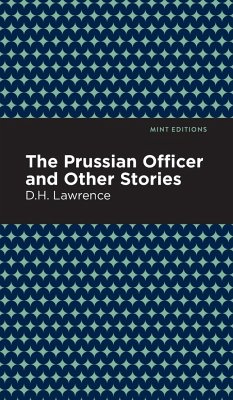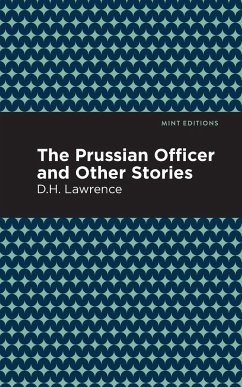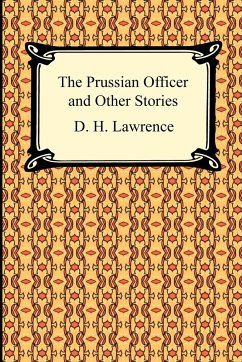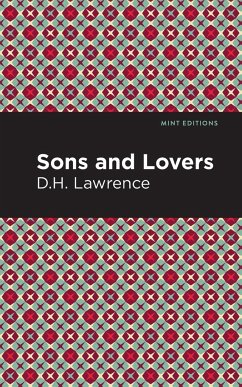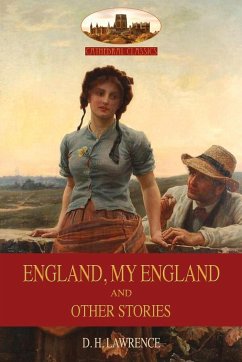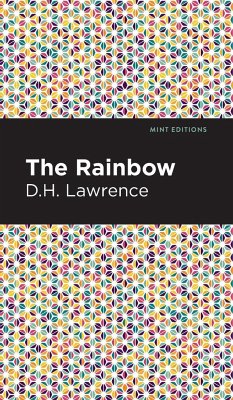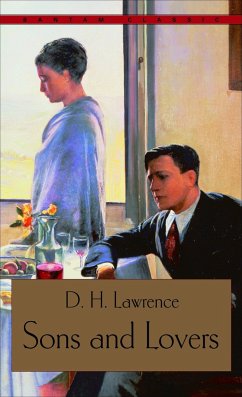
The Prussian Officer and Other Stories
Versandkostenfrei!
Versandfertig in 1-2 Wochen
13,99 €
inkl. MwSt.
Weitere Ausgaben:

PAYBACK Punkte
7 °P sammeln!
The Prussian Officer and Other Stories is a collection of early short stories by D. H. Lawrence which Duckworth, his London publisher, brought out on 26 November 1914. An American edition was produced by B W Huebsch in 1916. The stories collected in this volume are: The Prussian Officer The Thorn in the Flesh Daughters of the Vicar A Fragment of Stained Glass The Shades of Spring Second Best The Shadow in the Rose Garden Goose Fair The White Stocking A Sick Collier The Christening Odour of Chrysanthemums The first narrative of The Prussian Officer and Other Stories is The Prussian Officer and ...
The Prussian Officer and Other Stories is a collection of early short stories by D. H. Lawrence which Duckworth, his London publisher, brought out on 26 November 1914. An American edition was produced by B W Huebsch in 1916. The stories collected in this volume are: The Prussian Officer The Thorn in the Flesh Daughters of the Vicar A Fragment of Stained Glass The Shades of Spring Second Best The Shadow in the Rose Garden Goose Fair The White Stocking A Sick Collier The Christening Odour of Chrysanthemums The first narrative of The Prussian Officer and Other Stories is The Prussian Officer and tells the narrative of Captain and his orderly. Having wasted his youth with gambling, the captain has been left with only his military career, and though he has taken on mistresses throughout his life, he remains single. His young orderly is involved in a relationship with a young woman, and the captain, feeling sexual tension with regards to the young man, prevents the orderly from engaging in the relationship by taking up his evenings. These evenings lead to the captain abusing his orderly and leaving large, painful bruises on his thighs, making it hard for the orderly to walk. Whilst isolated in a forest during manoeuvres, the orderly takes out murderous revenge on the captain, but finds himself in a daze seemingly due both to the pain of the bruises and thirst. The orderly eventually collapses and dies in the hospital shortly there after. The corpses of the two men lay side by side. (wikipedia.org) Review by Sara Benovc: The Prussian Officer is one of the most moving and striking stories I have ever read. The imagery and emotion that the reader expiriences will not soon be forgotten.




